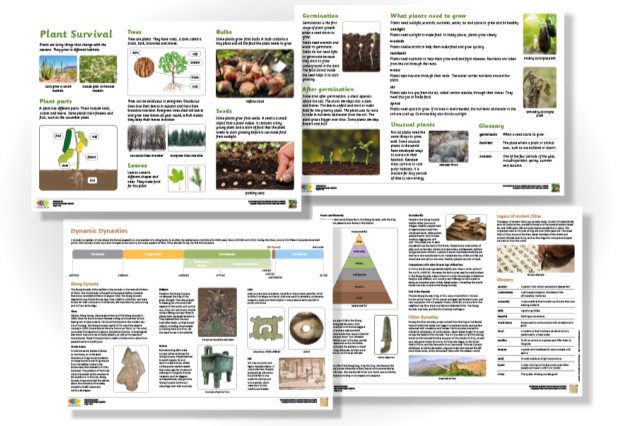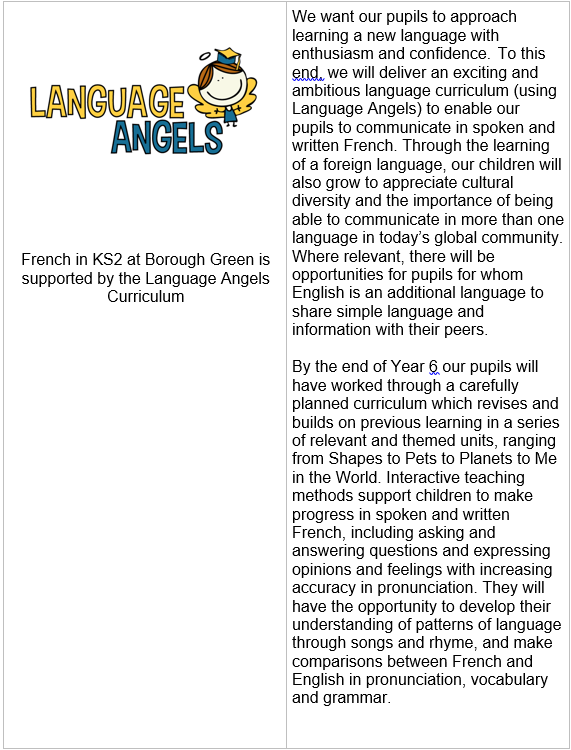The Wider Curriculum
Wider curriculum subjects
Some of our wider curriculum subjects are supported by the Cornerstones curriculum tool. The Cornerstones programme provides our pupils with clearly sequenced and highly-structured learning mapped across the school to ensure that core knowledge, skills and understanding are built on step-by-step within and across year groups. It is structured around ‘Projects’ created by subject specific experts and interconnected by ‘Big Ideas’ such as humankind, nature, change, etc. It covers Science, Art and Design, Design Technology, Geography and History and it also supports the White Rose Maths programme. In English, texts are linked to the projects ensuring that learning happens in a context of big ideas and rich associated language.
In Years 1 to 6, curriculum content is organised into a range of main and mini subject-driven projects. Main projects span a whole term and are focused on geography and history. Mini projects are taught over a term or half term and are subject-focused for science, art and design, and design technology.
Built on the national curriculum programmes of study, the curriculum begins with Big Ideas or macro concepts that steer the whole curriculum. These Big Ideas are broken down into smaller subject-specific concepts and aspects. These are further broken down to form a robust knowledge and skills framework that underpins the whole curriculum. The curriculum ‘powerful knowledge’, building their cultural awareness, specialised skills, academic achievement and wider understanding.
The project lessons build on prior learning and introduce new knowledge in manageable chunks. This supports cognitive load theory and avoids overwhelming children with too much information at one time. Crucially, content and resources are sequenced so that children are not expected to perform a skill without first learning the key knowledge required. We launch projects with a ‘memorable experience’ designed to engage and inspire children. To help children to learn and remember new knowledge, each project has built-in opportunities for recapping
and knowledge retrieval, including a mixture of low stakes quizzing, independent application of knowledge and effective questioning.
At Borough Green Primary school we teach in mixed year groups. The Cornerstones Curriculum tools support teachers to design and adapt a curriculum that ensures children build on prior knowledge and make good progress regardless of their age in each cycle of learning. For example, some children may study the project Childhood when in Year 1, others when in Year 2. We select lesson resources to ensure that every pupil is supported to make the next appropriate step in learning and to be challenged.
Knowledge Organisers
The projects are accompanied by Knowledge Organisers which summarise the key learning for each curriculum area. These highly visual documents can be used at school and at home and are the perfect resource for revising key vocabulary and project content.
Curriculum Overviews
Each Cornerstone subject below is accompanied by a curriculum Overview. These outline the learning journey and endpoints for each curriculum area covering Early Years to the end of Year 6. They do not show the journey as experienced in mixed age teaching but do show the sequence of learning and development of skills.
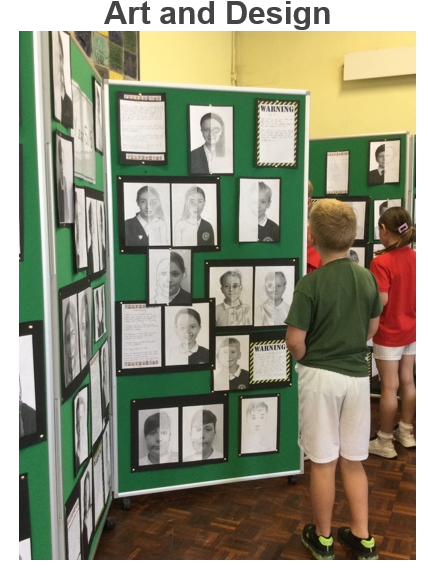
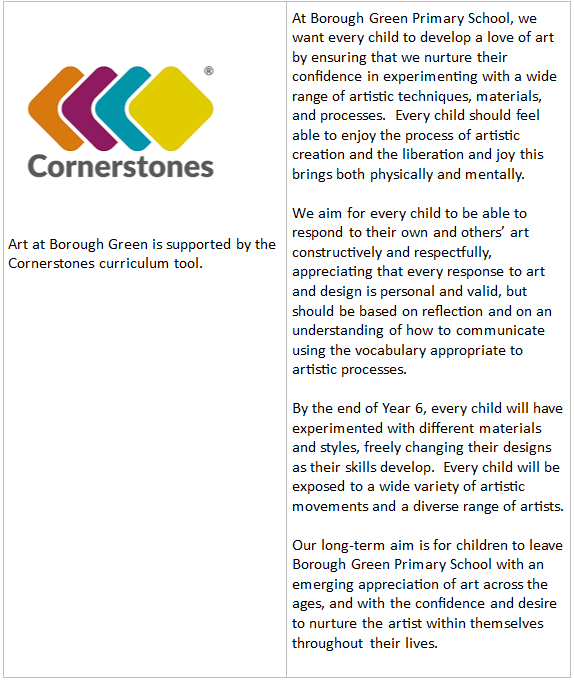
Our Key Elements for teaching Art and Design
We ensure that throughout their work, our pupils are taught:
- · Pattern and texture in natural and made forms
- · Colour matching and colour mixing
- · How images are made using line and tone
- · The use of shape, form and space in images and artefacts
- · How to develop, plan and communicate ideas
- · Work with tools, equipment, materials and components
- · Evaluate processes and product
- · Investigate artists and significant figures in creative design Art curriculum overview link
- · Investigate artists and significant figures in creative design Art curriculum overview link
We also work with local artists to expand and broaden our art curriculum even further, often culminating in projects or exhibitions which complement the work that pupils are doing in the classroom. More information about our previous art events can be found here: LINK – to photos of the Withy project and other galleries
Computing
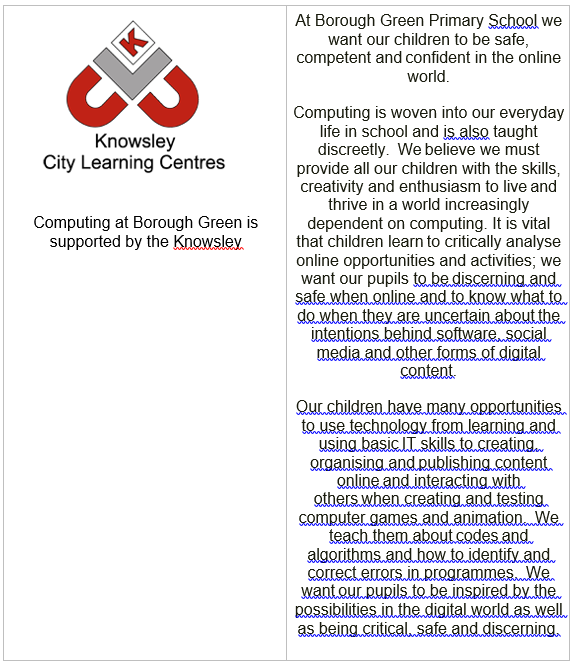
The Knowsley Computing curriculum is designed to support children in becoming creative, independent learners and ensure they develop a healthy relationship with technology. At our school we value and recognise the contribution that technology can make for the benefit of all pupils, staff, parents, governors and society. We strive to provide safe opportunities in computing to motivate, inspire and raise standards across the curriculum. Everyone in our school community will be equipped with the digital skills to meet developing technology with confidence, enthusiasm and prepare them for a future in an ever-changing world.
We want our children to be creators and innovators not just mere consumers of digital content. The idea of the children as digital creators is what underpins our planning and computing units. Our children are taught to understand that technology is an integral part of modern life and the key to the future is to harness and understand technology’s potential. Computing is a constantly evolving subject that involves solving complex problems, being able to collaborate with others, learning from mistakes and refining solutions.
Design Technology
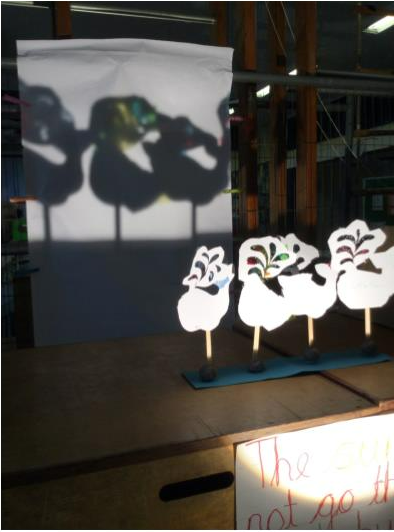
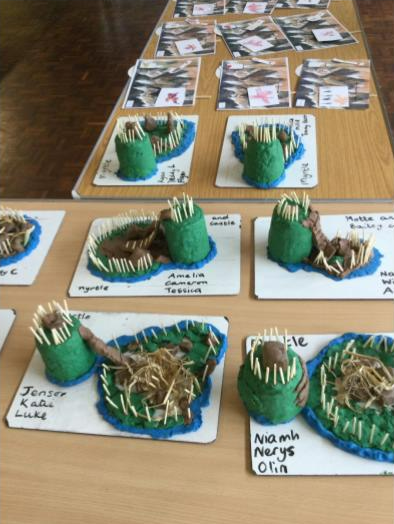
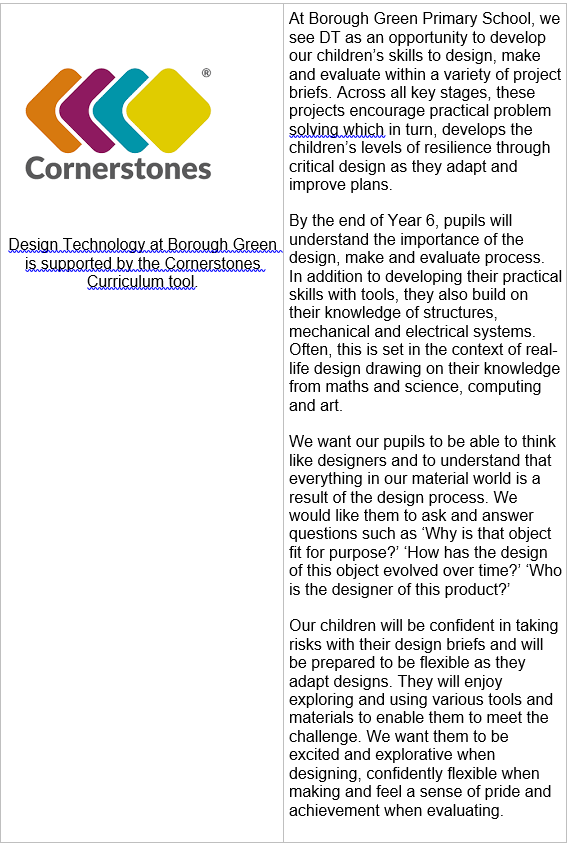
In addition to lessons, we have opportunities to explore design and making in our Forest School. Pupils make a range of products including for example Egyptian Canopic jars, Beaker pots, shelters for toys and insulated cup holders. They also link their learning about food and nutrition to the practical skills of preparing and cooking food, for example in Year 3 and 4 when they cook ratatouille.
Geography
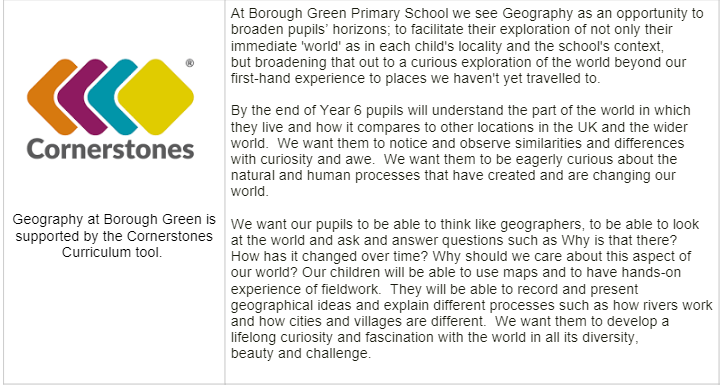
The children’s learning is enhanced by use of our wonderful school grounds and Forest School. Both visits and visitors also provide an invaluable part of the children’s learning, for example Crow Hill (a local site of interesting
Horton Kirby Environmental centre. In Year 6, pupils enjoy more fieldwork opportunities on the residential trip to the Isle of Wight.
Aims and objectives
The national curriculum for geography aims to ensure that all pupils:
- develop contextual knowledge of the location of globally significant places – both terrestrial and marine – including their defining physical and human characteristics and how these provide a geographical context for understanding the actions of processes
- understand the processes that give rise to key physical and human geographical features of the world, how these are interdependent and how they bring about spatial variation and change over time
- are competent in the geographical skills needed to:
- collect, analyse and communicate with a range of data gathered through experiences of fieldwork that deepen their understanding of geographical processes
- interpret a range of sources of geographical information, including maps, diagrams, globes, aerial photographs and Geographical Information Systems (GIS)
- communicate geographical information in a variety of ways, including through maps, numerical and quantitative skills and writing at length.
History
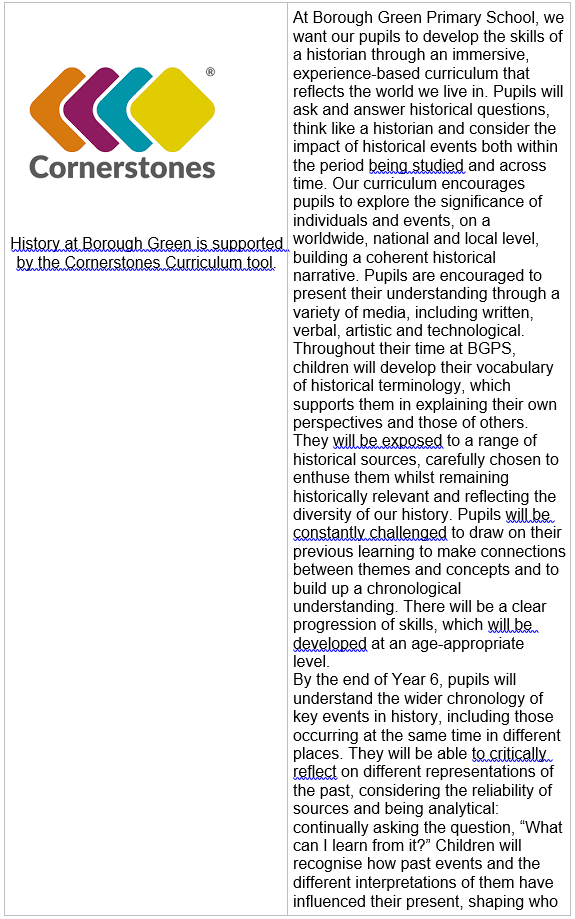
Aims and objectives:
The national curriculum for history aims to ensure that all pupils:
- · know and understand the history of these islands as a coherent, chronological narrative, from the earliest times to the present day: how people’s lives have shaped this nation and how Britain has influenced and been influenced by the wider world
- · know and understand significant aspects of the history of the wider world: the nature of ancient civilisations; the expansion and dissolution of empires; characteristic features of past non-European societies; achievements and follies of mankind
- · gain and deploy a historically grounded understanding of abstract terms such as ‘empire’, ‘civilisation’, ‘parliament’ and ‘peasantry’
- · understand historical concepts such as continuity and change, cause and consequence, similarity, difference and significance, and use them to make connections, draw contrasts, analyse trends, frame historically-valid questions and create their own structured accounts, including written narratives and analyses
- · understand the methods of historical enquiry, including how evidence is used rigorously to make historical claims, and discern how and why contrasting arguments and interpretations of the past have been constructed
- · gain historical perspective by placing their growing knowledge into different contexts, understanding the connections between local, regional, national and international history; between cultural, economic, military, political, religious and social history; and between short- and long-term timescales
MFL: French
Music
Our extracurricular program currently includes a choir, private instrumental lessons delivered by visiting specialists during school time and the opportunity to play in a band in iRock sessions. We currently have students learning guitar, drums, piano and singing. The whole school enjoy singing practice together once a week.
Special events throughout the year showcase the achievements of students both in their curriculum lessons and extracurricular ensembles. Regular events include termly iRock performances, performing at the local Christmas Lights event and joining other schools at the O2 every January.
PE
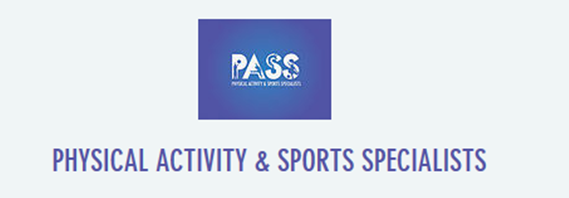
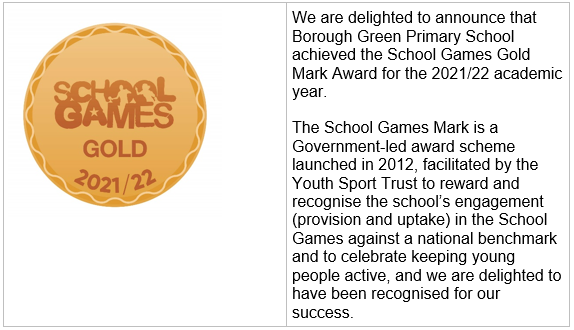
At Borough Primary School we value our Physical Education and Sport extremely highly as part of our pupil’s daily lives. We motivate and encourage children to take part in a wide range of sporting activities, building a healthy mindset and informing positive life choices as a result of understanding the benefits of activity and exercise. Our covered swimming pool is an asset that allows us to give all children two 6-week periods of lessons taught by a qualified swimming coach every year.
Specialist PE teachers work with our staff to develop their skills in delivering the PE curriculum and also run sessions in yoga and dance to support self-regulation development and well-being for specific groups of children.
Our children encounter a varied curriculum from Early Years/ KS1 where our lessons teach the fundamental skills required for physical activity such as agility, coordination, balance, throwing and catching. As they progress into KS2 our lessons are more sport specific – Netball, Football, Rugby are on offer plus many more!
We encourage a healthy attitude towards competition within sports at our school. We aim to provide our children with the necessary skills and attributes to show good sportsmanship and push themselves to compete for their personal goals as well as winning as a team. We are very proud of our successful athletes who pursue their sporting ambitions outside of school too, at a regional and national level. Lots of our children take part in extra-curricular clubs offered at school including Rugby, Football, Judo, Gymnastics and Dance.
PSHE
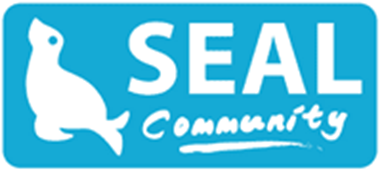
At Borough Green Primary School PHSE is central to everything we do and permeates the curriculum and extra curricular opportunities. We learn with “kind hearts and determined minds” and PHSE supports children to value and embody both kindness and determination as well as developing their sense of self and healthy personal boundaries. HLTAs deliver a carefully crafted curriculum using SEAL (Social and Emotional Learning) resources which is able to respond flexibly to current events and the needs of particular classes or year groups and class teachers contribute daily to reinforce the values and themes. Visitors and events enrich the curriculum including visits by Kent Fire Service, Young Carers specialists and Community Support Officers, assemblies using the NSPCC resources and performances by theatre groups on topics such as bullying, mental health and drugs awareness. Mental well-being and tools for self-regulation are priorities with every classroom having a Zones of Regulation corner and other carefully-designed rooms and spaces available pupils who need time out of the classroom.
Our RSE curriculum teaches children how to recognise healthy and unhealthy relationships and prepares them for the changes involved in puberty. Parents are invited to work closely with us by viewing the videos before they are shown to children and by discussing the curriculum content with teachers. These important issues are additionally reinforced through the computing curriculum and internet safety lessons.
School assemblies regularly focus on themes such as diversity, self-esteem, teamwork, difference and growth mindset. KS2 assemblies delve deeper into personal responsibility, mental health and emotional intelligence.
In addition to this, PSHE is delivered through a range of whole school activities. Pupils are given opportunities to join in and contribute to local and national initiatives e.g. anti-bullying week, community cohesion projects and fund-raising activities. Pupils may take part in school assemblies, be elected to the School Council and are encouraged to express their opinions. Pupils are offered a wide range of opportunities to enhance their learning and engage with the concepts and content of the subject through learning in other subjects and areas of the curriculum and out-of-school activities.
Our vision is for pupils to understand and value themselves while also developing empathy for others. PHSE is a dedicated lesson every week for talking about healthy lifestyles and strategies that will help when we face life’s inevitable challenges. The school’s values of generosity, belonging, independence and mastery permeate everything we do.
RE
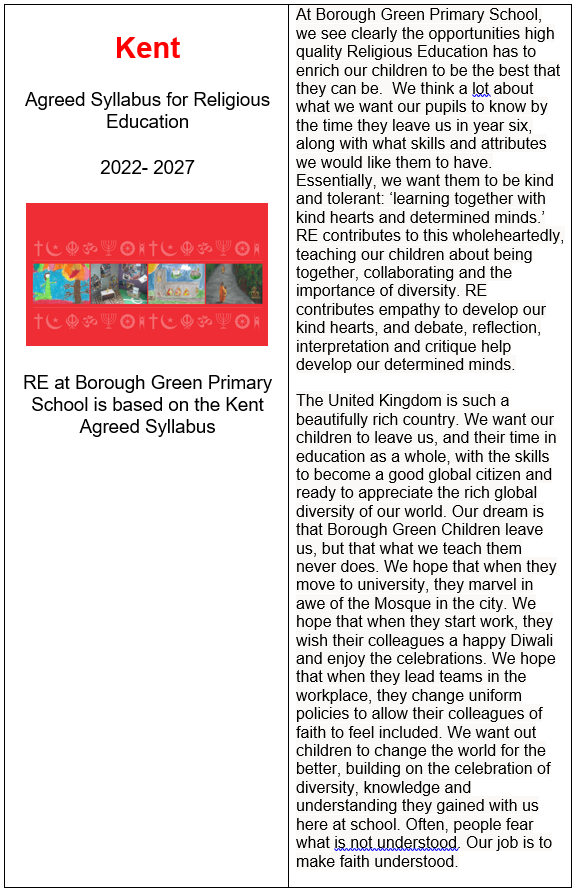
RE has a particular contribution to make towards the spiritual, moral, social and cultural education of each pupil. It involves 3 important strands:
Believing Religious beliefs, teachings, sources, questions about meaning, purpose and truth.
Expressing Religious and spiritual forms of expression, questions about identity and diversity.
Living Religious practices and ways of living, questions about values and commitments.
Religious Education is unique in the school curriculum in that it is neither a core subject nor a foundation subject but the 1988 Education Act states that ‘Religious Education has equal standing in relation to core subjects of the National Curriculum in that it is compulsory for all registered pupils’. Borough Green Primary School delivers RE in line with the Kent Agreed Syllabus.
Religious Education provokes challenging questions about the ultimate meaning and purpose of life, beliefs about God, the self and the nature of reality, issues of right and wrong and what it means to be human.
At Borough Green Primary School, the R.E. syllabus is based around a key question approach. In order to make Religious education engaging and enquiring we employ a variety of teaching methods including discussion, the development of thinking skills, drama through freeze frames etc, the use of artefacts, pictures, stories and the use of periods of stillness and reflection.
Documents below detail the knowledge and skills that pupils will gain at each stage of the curriculum. To view how the curriculum is taught please view the long and medium term plans under the curriculum tab.
If your curriculum question isn't answered on the following pages, please contact your child's class teacher for more information.

